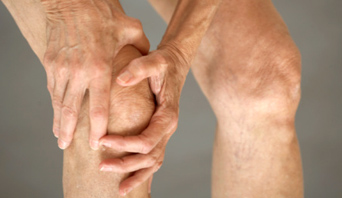Knee Pain and an Active Lifestyle
Most people experience knee pain at some point in their lives. Sports, exercise and other activities can cause muscle strains, tendinitis, and more serious injuries to ligaments and cartilage. For some, knee pain can be so severe that it limits daily activities. For others, mild knee pain may be a chronic hindrance to the active lifestyle they desire. In either case, chances are that you’re dealing with a knee problem that shouldn’t be ignored.
Knee Ligament Injuries
The ligaments are what connect your thigh bone to your lower leg bones. They hold your bones together and keep the knee stable. Knee ligament sprains and tears are very common sports injuries, and can occur to the anterior cruciate ligament (ACL), posterior cruciate ligament (PCL), and medial collateral ligament (MCL). Any of these injuries can result in severe knee pain and could require surgery.
Knee Cartilage Tears
Other injuries, including tears, can take place in the cartilage of the knee. Cartilage is a semi-hard (tough, but flexible) tissue that covers the end of your bones. Knee cartilage comprises the two menisci on either side of the joint: the medial meniscus, located on the inside of the knee and the lateral meniscus, positioned on the outside of the knee. You’ve probably heard the phrase “meniscus tear”. A tear in the knee cartilage is a common injury, and typically requires surgery.
Arthritis of the Knee
Arthritis is a common cause of severe knee pain and disability. Unfortunately, arthritis is a chronic degenerative condition that can eventually require surgery. The three most common types of arthritis are rheumatoid arthritis, post-traumatic arthritis, and osteoarthritis. In the case of any of these three, you may experience stiffness and swelling, and it may be hard to bend your knee
Rheumatoid Arthritis of the Knee
Rheumatoid arthritis is an autoimmune disease that causes the tissue around the joint to become inflamed and thickened. Chronic inflammation often leads to damage and loss of cartilage. Rheumatoid arthritis represents only about 10 percent to 15 percent of all arthritis cases.
Post-Traumatic Arthritis
Post-traumatic arthritis can result after a serious knee injury, including bone fractures and ligament tears. These injuries can damage the cartilage in your knee over time and lead to pain, swelling, and stiffness.
Osteoarthritis of the Knee
The most common type of arthritis is osteoarthritis, which is a progressive wearing of the cartilage in the knee joint. It occurs more frequently in individuals 50 and older. After 50, the impact of osteoarthritis can worsen due to accumulated use and the wearing down of cartilage that occurs with age. Osteoarthritis of the knee causes pain, limited range of motion, stiffness of the knee, swelling of the joint, tenderness, deformity and weakness.
Causes of osteoarthritis include age, weight, genetics, previous injuries, infections, and illness (such as a tumor or gout). Osteoarthritis can also be caused by sports injuries and wear and tear resulting from physical work in occupations, such as construction and manufacturing.
Diagnosing Knee Pain
Doctors diagnose arthritis and other knee problems using x-rays and a physical evaluation. You will be asked about your pain level, knee flexibility and function, and general mobility. Medical professionals will also use special tests to identify the type of arthritis affecting your knee.
Treating Knee Pain from Arthritis
Knee pain usually becomes worse as arthritis progresses. Common treatments include: weight loss, strengthening exercises, wrapping, and pain relievers—such as acetaminophen and non-steroidal anti-inflammatory drugs (NSAIDs).
While osteoarthritis is the most common surgical patient diagnosis, those with severe pain from any type of arthritis may benefit from surgery, including a partial or total knee replacement. It’s crucial to discuss and explore all treatment options with your doctor before opting for surgery.
Source: healthline


